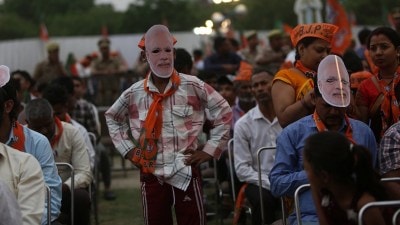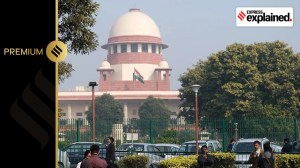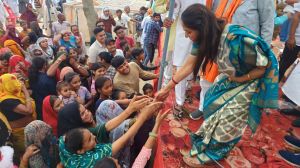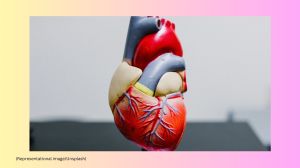- India
- International
At least Rs 1 crore compensation for death of polling officers due to Covid-19: Allahabad HC
The court said that the amount decided by the government (Rs 30 lakh) to compensate the loss of the bread earner’s life of a family was too less.
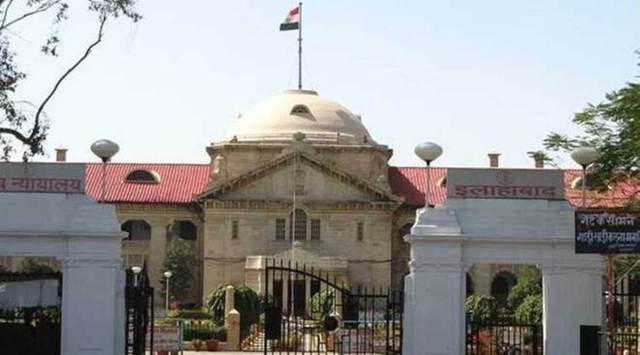 The court observed that the case indicated that it was related to some matrimonial dispute between the petitioner and his wife. The judges pointed out that the petitioner did not satisfy the definition of a “goonda” as laid out in Section 2(b) of the Goondas Act. (File)
The court observed that the case indicated that it was related to some matrimonial dispute between the petitioner and his wife. The judges pointed out that the petitioner did not satisfy the definition of a “goonda” as laid out in Section 2(b) of the Goondas Act. (File)
The Allahabad High Court on Tuesday asked the UP government to rethink the amount of compensation to be given to polling officers who died on duty due to COVID-19 during the Panchayat polls and said the amount “must be at least to the tune of Rs 1 crore”.
The court said that the amount decided by the government (Rs 30 lakh) to compensate the loss of the bread earner’s life of a family was too less. The court observed that it was a “deliberate act on the part of the State and State Election Commission to force them to perform duties in the absence of RTPCR support”.
On May 7, the state government had told the court the state government had decided to give compensation of Rs 30 lakh to the families of deceased polling officers.
The counsel for the State Election Commission (SEC) Tarun Agrawal had told the court 77 polling officers had died in 28 districts and reports from other districts were still awaited. On Tuesday, Agrawal sought further time to bring in details.
The lawyers on behalf of the polling officers submitted that “the amount decided by Government was too meager” considering the threat of pandemic “which was well known to the state government as well as SEC” and yet the teachers, investigators and Shiksha Mitras were forced to take the risk.

While hearing a PIL, Justices Siddhartha Varma and Ajit Kumar directed that in every district of the state, three-member “Pandemic Public Grievance Committee” shall be formed and that would include Chief Judicial Magistrate or a judicial officer of similar rank to be nominated by the District Judge”.
The other members would be a medical college professor, who will be nominated by the Medical College Principal and if there is no medical college, then a level three or four doctor of the district hospital, who will be nominated by the Chief Medical Superintendent of the district hospital. The third member would be an administrative officer of the rank of Additional District Magistrate to be nominated by the District Magistrate.
The court ordered that the committees should come into existence within 48 hours of passing the order. The court said that in rural areas, the complaint can be submitted to SDMs who will pass it on to the committees.
The court observed that it found that in the affidavit filed in compliance of its order “neither required information, as mandated by our order, has been given nor, otherwise compliance has been made to our various directions” in paragraph 19 of the order, passed on April 27.
Among the issues raised by the court was that “the number of testing has been reduced gradually” as shown in the affidavit filed by the government.
“Even the details regarding oxygen production in the State qua 22 hospitals have not been given,” said the court.
The court said that if it considers a report submitted by Nodal Officers of Gorakhpur, Lucknow, Prayagraj, Gautam Budh Nagar, and Kanpur, “the scene emerges otherwise than the picture shown with figures of deaths”. The court said it will deal with the issue on the next date of hearing – May 17.
The court also directed the state and Central government to place before it the programme by which “they would vaccinate those illiterate labours and other villagers between the age group of 18 and 45 years if they are not able to register online for vaccination”.
Apr 25: Latest News
- 01
- 02
- 03
- 04
- 05











